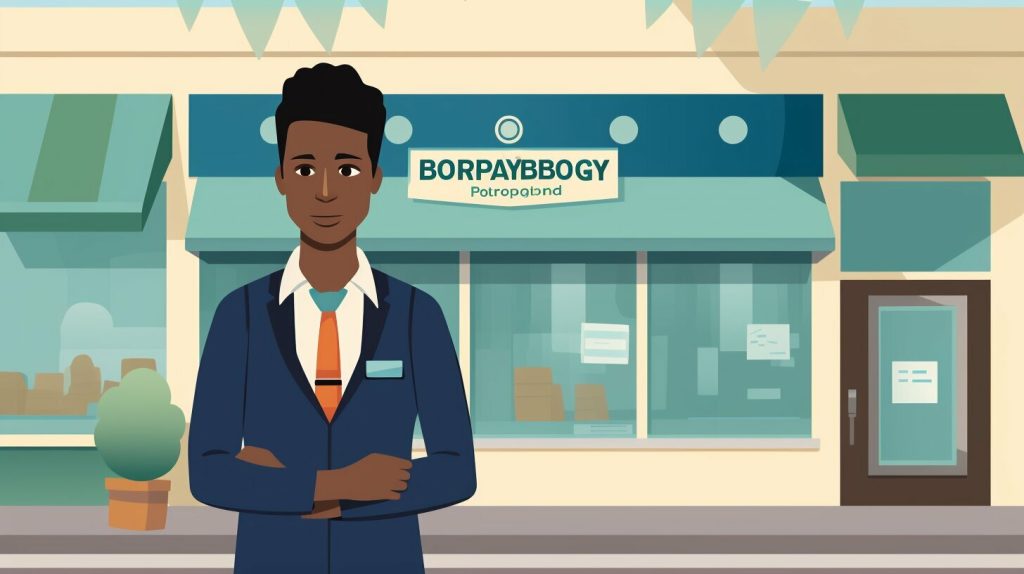Many people rely on payday loans to help them cover unexpected expenses, but what about temporary employees? If you are a temporary employee, you may wonder if you are eligible to use payday loans to manage your financial needs. In this section, we will explore the question of whether temporary employees can use payday loans and discuss the criteria that lenders typically consider.
Before we delve into whether temporary employees can use payday loans, let’s first define what payday loans are. A payday loan is a short-term loan that typically comes due on the borrower’s next payday.
The borrower writes a post-dated check or provides the lender with access to their bank account. The lender then gives the borrower the loan amount, minus fees and interest. On the due date, the lender cashes the post-dated check or withdraws the funds from the borrower’s bank account.
Payday loans are often marketed as a quick and easy way to get cash when you’re in a bind. However, they come with high fees and interest rates, making them a costly option for borrowing money. In fact, the Consumer Financial Protection Bureau reports that the average payday loan borrower pays $15 for every $100 borrowed in fees alone.
In general, payday loans should be a last resort for borrowing money due to the high costs involved.
If you’re considering a payday loan, you’ll need to meet certain requirements to qualify. These requirements typically include:
The specific requirements may vary depending on the lender and state you live in. It’s important to note that lenders will typically check your credit score and credit history before approving you for a payday loan. However, some lenders may offer payday loans without performing a credit check.
Now that we have a general understanding of payday loans and their requirements, let’s explore whether temporary employees can use them.

Payday loans are designed to provide quick access to cash for those who need it. However, not everyone is eligible for these types of loans. Lenders typically have specific eligibility requirements that borrowers must meet in order to qualify.
The common criteria that lenders consider when determining eligibility for payday loans include:
In order to qualify for a payday loan, a borrower must typically have a steady source of income, whether it be from a job or other means. This is because lenders need to know that the borrower will be able to pay back the loan on time.
Additionally, borrowers must be over the age of 18 and have a bank account. The bank account is necessary for the lender to deposit the loan funds and to withdraw the repayment amount on the due date.
While temporary employees may meet these eligibility requirements, they may face additional challenges in obtaining a payday loan. This is because lenders often prefer borrowers with stable, long-term employment. Temporary employees may not have a steady income or may be in between jobs, which can make it more difficult to qualify for a payday loan.
Overall, eligibility for payday loans depends on a variety of factors, including employment status and income. While temporary employees may face challenges when it comes to payday loans, it is important to explore all of the available options for financial assistance.

As with any financial product, payday loans have both advantages and disadvantages. Temporary employees, in particular, may experience unique benefits and challenges when it comes to using payday loans.
One of the main advantages of payday loans for temporary employees is their accessibility. Payday lenders usually require minimal documentation and credit checks, making it easier for temporary employees to qualify for a loan. Additionally, payday loans offer quick access to funds, which can be helpful for temporary employees who need cash immediately.
Another advantage is the flexibility that payday loans offer. Temporary employees may only need to borrow a small amount of money to cover a short-term financial need, and payday loans can provide that. Payday loans typically have lower loan amounts compared to other types of loans, making it a more manageable payment for temporary employees.
One major drawback of payday loans is the high interest rates. Payday lenders often charge significantly higher rates than traditional lenders, which can make repaying the loan difficult for temporary employees who may have other financial obligations to fulfill. Furthermore, failing to pay back the loan on time can result in additional fees and further damage to a temporary employee’s credit score.
Another disadvantage is the potential for payday loans to create a cycle of debt. Because of the high interest rates, it can be difficult for temporary employees to repay the loan in full on their next payday, leading them to take out another payday loan to cover the previous one. This can lead to a continuous cycle of borrowing and debt accumulation, which can ultimately harm a temporary employee’s financial situation in the long term.
Overall, temporary employees should carefully consider the advantages and disadvantages of payday loans before deciding to take one out. It is important to evaluate one’s financial situation, determine the ability to repay the loan, and consider other available options.
While payday loans may seem like a quick solution for temporary employees facing financial challenges, there are alternative options that may be more suitable in the long run. Here are some alternatives to consider:
Personal loans are one option for temporary employees who need to borrow money. These loans typically have lower interest rates than payday loans, but they may require a credit check and proof of income. Some lenders may also require collateral.
If you have a credit card, you may be able to use it to cover unexpected expenses. While credit cards may also have high interest rates, they offer the advantage of allowing you to spread out payments over time.
Many communities offer emergency assistance programs that can help temporary employees cover unexpected expenses, such as utility bills, rent, or medical costs. Check with your local government or community organizations to see what options are available in your area.
Credit counseling agencies can help temporary employees develop a plan to manage their finances and reduce debt. These agencies offer free or low-cost services and can provide guidance on budgeting, debt management, and credit repair.
While payday loans may be an option for temporary employees in need of quick cash, they are not always the best solution. Consider the alternatives discussed in this section to find a more affordable and sustainable way to manage your finances. By taking the time to explore your options and develop a plan, you can improve your financial situation and achieve greater stability and security in the long run.

In conclusion, temporary employees may be eligible for payday loans depending on their employment status and ability to meet the lender’s requirements. However, temporary employees should be aware of the potential disadvantages of payday loans, including high interest rates and fees. It is important for temporary employees to explore alternative options, such as short-term loans, financial assistance programs, or budgeting tools, before considering payday loans.
If a temporary employee does decide to pursue a payday loan, they should carefully review the terms and conditions of the loan and ensure they can afford to repay it on time. Taking out a payday loan without the ability to repay it can lead to further financial difficulties.
Overall, temporary employees can use payday loans, but they should carefully consider the potential benefits and drawbacks before making a decision. It is important for temporary employees to prioritize financial stability and explore all available options for managing their finances.